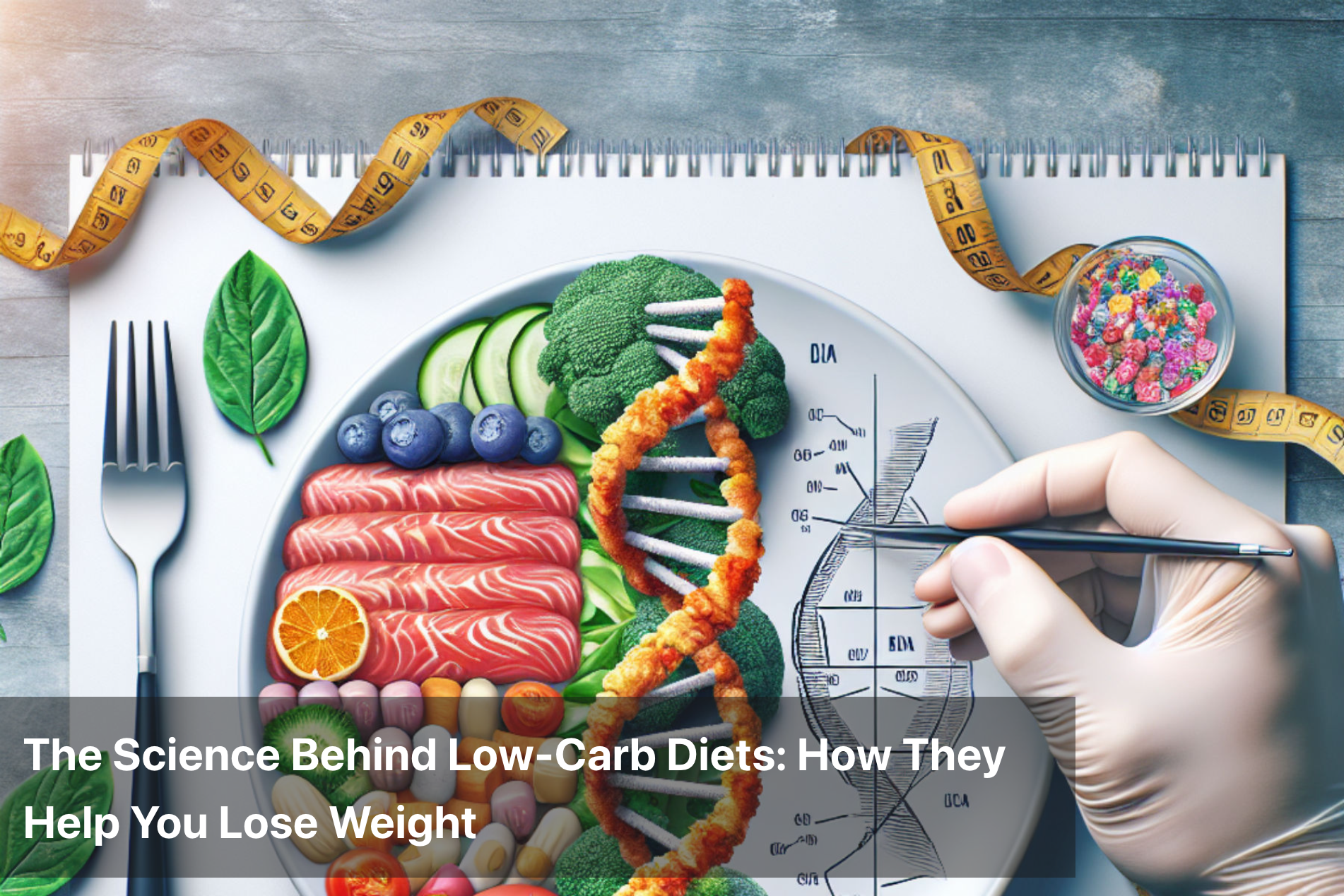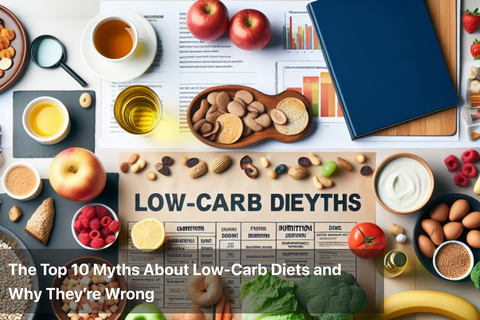
The Science Behind Low-Carb Diets: How They Help You Lose Weight
Low-carb diets have become a popular strategy for weight loss, and not without reason. Backed by decades of scientific research, reducing carbohydrate intake can trigger a range of physiological changes that support fat burning, appetite control, and better metabolic health. Instead of merely relying on willpower or calorie counting, low-carb diets work by shifting how the body uses energy and regulates hunger.
Understanding the science behind low-carb eating reveals why this approach is often more sustainable and effective than traditional low-fat or calorie-restricted diets.

Carbohydrates and the Body’s Primary Energy Source
Carbohydrates are the body's quickest source of energy. When consumed, they are broken down into glucose, which enters the bloodstream and is used by cells for fuel. To manage blood sugar levels, the pancreas releases insulin, a hormone that transports glucose into cells and promotes storage of excess energy as fat.
In a high-carb diet, frequent spikes in insulin can lead to:
-
Fat accumulation, particularly around the belly
-
Reduced insulin sensitivity
-
Increased hunger and cravings
-
Elevated blood sugar levels
By limiting carbohydrates, the body is encouraged to use fat instead of glucose as its main energy source.
The Switch to Fat Burning: Ketosis and Beyond
When carbohydrate intake is reduced, the body turns to stored fat for energy. In very low-carb conditions, this leads to the production of ketones in the liver—a process called ketosis. Ketones are an alternative fuel source for both the brain and body.
Even outside of ketosis, a lower intake of carbs encourages fat oxidation—meaning the body becomes more efficient at breaking down fat for fuel. This metabolic shift supports gradual, steady weight loss.
Key effects include:
-
Decreased reliance on glucose
-
Reduced fat storage
-
Increased fat-burning enzymes
-
Enhanced metabolic flexibility (ability to switch between fuel sources)
Reduced Insulin = Reduced Fat Storage
Insulin plays a major role in fat storage. It promotes the conversion of excess glucose into fat and inhibits fat breakdown. When carbs are consistently consumed in high amounts, insulin remains elevated, making it difficult for the body to access stored fat.
On a low-carb diet:
-
Insulin levels drop, unlocking fat stores
-
Lipolysis (fat breakdown) is activated
-
Triglyceride levels fall, reducing fat accumulation in the liver and bloodstream
These hormonal shifts are especially beneficial for people with insulin resistance or type 2 diabetes, where insulin function is impaired.
Appetite Regulation and Satiety
One of the biggest advantages of low-carb diets is their natural ability to control hunger without strict portion control. This happens through several mechanisms:
-
Stable blood sugar levels reduce spikes and crashes that trigger hunger
-
Protein and fat-rich meals promote greater satiety than carb-heavy meals
-
Reduced ghrelin (the hunger hormone) and increased levels of peptide YY and GLP-1, which signal fullness
As a result, people on low-carb diets tend to eat fewer calories naturally, without the constant urge to snack or overeat. This makes weight loss more sustainable in the long term.
Improved Fat-Burning Hormones and Enzymes
Low-carb diets can positively influence hormones and enzymes that regulate metabolism and fat burning:
-
Leptin, a hormone that signals fullness, becomes more responsive
-
Adiponectin, which enhances insulin sensitivity and fat metabolism, increases
-
AMPK (AMP-activated protein kinase), a metabolic enzyme that boosts fat breakdown, becomes more active
These changes improve the body’s ability to regulate energy, burn fat more efficiently, and maintain a healthy metabolic rate.

Long-Term Benefits for Metabolic Health
Beyond weight loss, low-carb diets contribute to overall metabolic improvement. Long-term benefits may include:
-
Lower triglyceride levels
-
Increased HDL (good cholesterol)
-
Decreased blood pressure
-
Improved blood sugar control
These factors collectively reduce the risk of cardiovascular disease, type 2 diabetes, and other obesity-related conditions.
Summary
Low-carb diets promote weight loss through a combination of hormonal regulation, appetite control, and metabolic efficiency. By reducing insulin levels, enhancing fat-burning, and stabilizing blood sugar, the body naturally shifts into a state where fat becomes the preferred fuel source. The result is sustainable weight loss without extreme restriction or constant hunger.
Incorporating real, whole foods—such as non-starchy vegetables, healthy fats, and quality proteins—further strengthens the benefits. A low-carb lifestyle is not just about eating fewer carbs; it’s about training the body to function at its best.
FAQs
1. How many carbs should I eat on a low-carb diet?
Most low-carb diets recommend 50–150 grams of carbs per day, depending on your goals. Lower ranges are ideal for weight loss and blood sugar control.
2. Will I lose weight quickly on a low-carb diet?
Initial weight loss is often rapid due to water loss, followed by steady fat loss. Consistency and food quality determine long-term results.
3. Is it safe to follow a low-carb diet long-term?
Yes, when based on whole foods with adequate protein, fats, and fiber. It’s sustainable and effective for long-term health and weight management.
4. Do I need to be in ketosis to lose weight on low-carb?
Not necessarily—ketosis helps some, but weight loss can occur without it. Fat loss happens as insulin drops and metabolism improves.
5. What are the best foods to include on a low-carb diet?
Focus on lean proteins, healthy fats, non-starchy vegetables, nuts, seeds, and low-carb dairy. Avoid refined carbs, sugars, and processed foods.
This Blog post is an initiative by Lo! Foods, to provide accurate and Nutritionist / Doctor approved information related to Health. Lo! Foods is India's leading brand for Everyday Functional Foods. Foods designed for specific Health conditions or Needs. Lo! Foods also runs India's largest range of Low Carb Healthy Cloud Kitchens, under the brand names of Lo!, ProteinChef, ATH (All Things Healthy) and DiabeSmart.













Leave a comment
Your email address will not be published.